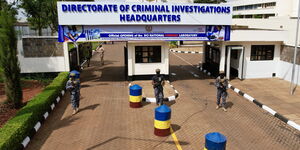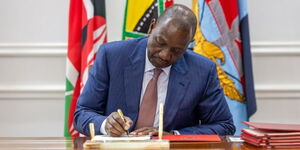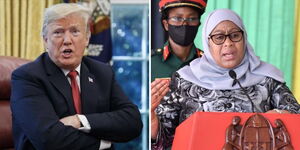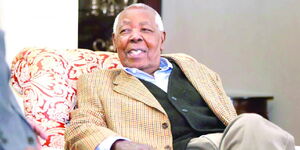There was a nervy moment in Bungoma County after Independent Electoral and Boundaries Commission (IEBC) biometrics kit failed to identify Speaker Moses Wetangula’s fingerprints.
The National Assembly speaker arrived at Namakhele Primary School in Kabuchai Constituency on Thursday, December 8, to vote for his preferred candidate.
In a video seen by Kenyans.co.ke, IEBC's biometrics kit initially failed to identify the former senator.
With help from an IEBC officer, Wetangula tested the data of several fingers with no success.
The speaker finally voted, but it was unclear if he used a manual register or the Kiems kit to be identified.
IEBC announced the senator's seat vacant after Moses Wetangula resigned on September 7 to contest for the National Assembly speaker position.
Wetangula supported Ford Kenya Party candidate Mwalimu David Wakoli Wafula as his potential successor.
Other candidates in the race included Mwambu Mabonga (UDA), Wafula Wamunyinyi (Azimio), Fredrick Busolo (Vibrant Democracy Party), Aaron Wafula (Republican Liberty Party), Geoffrey Barasa (National Ordinary People Empowerment Union) and Robert Sifuna (Roots Party of Kenya).
Meanwhile, identification by biometrics was a contentious issue heading to the August 9 elections, with the Court of Appeal forced to make a ruling.
President William Ruto's United Democratic Alliance (UDA) filed a case at the Court of Appeal challenging the High Court ruling allowing manual registers concurrently with the electronic register.
The Court of Appeal agreed with UDA’s petition that a manual register should only be used if the biometric kits fail completely.
Azimio coalition, after the August 9 elections, subsequently filed a petition at the Supreme Court arguing that Biometric Kits had failed to work at their strongholds, suppressing voter turnout.
"The absence of any empirical data bars the court from finding that IEBC suppressed voting in Mr Odinga strongholds," Supreme Court, however, rejected his prayers in the September 5 ruling.












